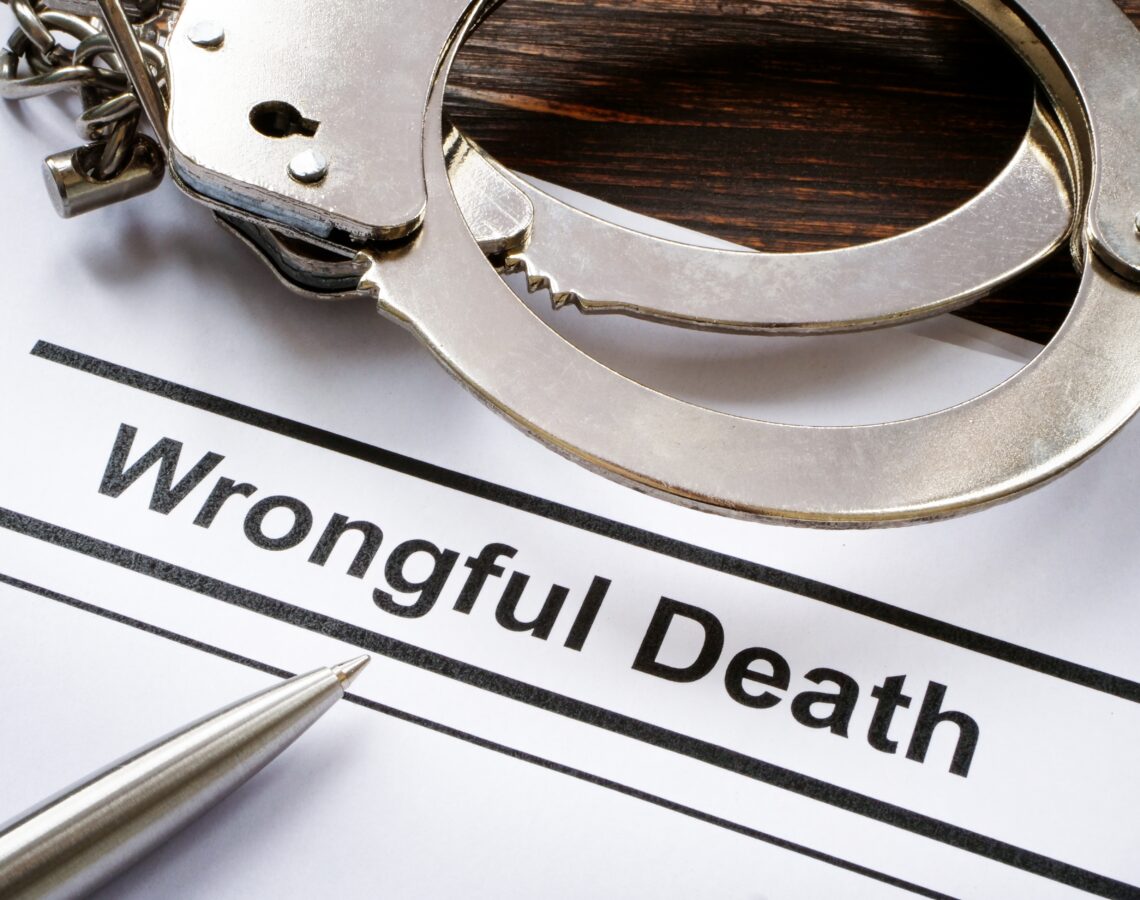What Is the Average Settlement for a Wrongful Death Claim in Indiana?

The unexpected loss of a loved one brings overwhelming grief and financial uncertainty. When that loss results from another party’s actions, Indiana law allows surviving family members to pursue a wrongful death claim. These claims are not about assigning a dollar value to a life. They are about holding the responsible party accountable and recovering financial support for those left behind.
One of the most common questions families ask is, “What is the average settlement for a wrongful death claim in Indiana?” The answer depends on several factors, including the circumstances of the death, the available evidence, and specific provisions in Indiana law. This article reviews how wrongful death settlements are determined in Indiana, what types of compensation may be recovered, and examples of case outcomes across the state.
This guide, written by Klezmer Maudlin, PC, is for those evaluating their legal options. It provides factual, plain-language information about wrongful death settlements in Indiana and how an Indianapolis Wrongful Death Lawyer can assist throughout the process.
Who Can File a Wrongful Death Claim in Indiana?
Indiana limits who can file a wrongful death claim to the personal representative of the deceased person’s estate. The court usually appoints this individual during the probate process, and this individual is often a spouse, parent, or adult child. In cases involving children or unmarried adults without dependents, Indiana law outlines specific procedures and limitations that affect who can file and what damages may be recovered.
The right to file is not open to extended family members unless they are appointed as the estate’s legal representative. Even if the surviving family members are financially or emotionally affected by the loss, they cannot file independently unless designated by the probate court.
The legal framework governing these cases comes from the Indiana Code, specifically:
- Indiana Code § 34-23-1 (General Wrongful Death Act),
- Indiana Code § 34-23-1-1 (Child Wrongful Death),
- Indiana Code § 34-23-1-2 (Adult Wrongful Death Act).
These statutes determine the available compensation depending on the decedent’s age, marital status, and dependents.
What Damages Can Be Recovered in Indiana Wrongful Death Claims?
Wrongful death claims allow the estate and certain family members to recover financial and non-financial damages. The goal is to provide compensation for measurable losses and for the emotional impact caused by the death.
The types of recoverable damages include:
- Economic Damages
- Funeral and burial expenses
- Medical expenses incurred before death
- Loss of the deceased person’s future income and benefits
- Loss of services (such as caregiving or household tasks)
- Non-Economic Damages
- Loss of love and companionship
- Grief and emotional trauma experienced by the surviving family
- Loss of parental guidance (for surviving children)
These non-economic damages are not always unlimited. Indiana imposes damage caps in specific scenarios:
- Unmarried Adults with No Dependents. Non-economic damages for loss of love and companionship are capped at $300,000 under the Adult Wrongful Death Act.
- Medical Malpractice Claims. Total damages are capped at $1.8 million under Indiana’s Medical Malpractice Act.
- Government Entities. If a wrongful death was caused by a city, county, or state employee, the Indiana Tort Claims Act limits recovery to $700,000 per person and $5 million per incident.
There is no cap on economic damages in most wrongful death cases involving private parties, including car accidents, truck accidents, and many workplace incidents involving third-party negligence.
What Affects the Settlement Value of a Wrongful Death Claim?
Several key factors determine the financial outcome of a wrongful death claim. While every case is unique, the following issues often carry the most weight in deciding settlement or trial value:
The Age and Earning Potential of the Deceased
Younger individuals with a longer working life ahead may result in higher compensation due to the value of their lost income and benefits. For example, if a 35-year-old parent is killed in a commercial truck accident, the claim may include decades of projected earnings, retirement contributions, and life insurance value.
The Circumstances of the Death
Cases involving clear evidence of recklessness, gross negligence, or preventable hazards may result in higher payouts. For example, if a company failed to repair faulty machinery that caused a worker’s death, or if a medical provider ignored signs of distress in a hospital setting, these factors can lead to increased settlement offers or jury verdicts.
Insurance Coverage and Defendant Assets
A strong case may not lead to a larger financial recovery if the at-fault party carries minimal insurance or has no significant assets. On the other hand, claims involving corporate defendants or commercial vehicles often involve more substantial insurance policies, which expands the possible settlement range.
The Legal Forum and Jury Pool
Some counties in Indiana are more favorable to plaintiffs than others. In addition, cases brought in federal court may involve different timelines and procedural requirements. The location where the case is filed can affect settlement negotiations.
Whether the Case Settles or Goes to Trial
The majority of wrongful death claims in Indiana are resolved through negotiated settlements. Trials are typically reserved for cases where liability is disputed or where insurance companies refuse to make reasonable offers. Verdicts can be higher, but they also involve greater risk and delay.
Types of Wrongful Death Cases and Their Impact on Compensation
The type of incident leading to a wrongful death plays a significant role in determining how a claim is pursued and how compensation is evaluated. Each case category involves different legal standards, evidence requirements, and potential barriers.
Motor Vehicle Accidents
 Car and truck accidents remain among the most common causes of wrongful death in Indiana. When a driver acts negligently—by speeding, driving under the influence, or running a red light—the resulting death can lead to a civil claim.
Car and truck accidents remain among the most common causes of wrongful death in Indiana. When a driver acts negligently—by speeding, driving under the influence, or running a red light—the resulting death can lead to a civil claim.
Settlements in these cases vary widely. Seven-figure resolutions are possible where there is substantial liability and sufficient insurance coverage. Commercial vehicles often carry higher insurance limits, significantly increasing the settlement potential. Passenger vehicle policies, in contrast, may be capped by lower coverage amounts.
Medical Malpractice
Indiana’s Medical Malpractice Act governs wrongful death due to medical negligence. Under this statute, the total damages are capped at $1.8 million for incidents occurring after July 1, 2019. Before that date, caps were lower.
These claims typically involve misdiagnosis, surgical errors, failure to monitor, or failure to act during a medical emergency. The Indiana Department of Insurance oversees these claims, and the Patient’s Compensation Fund pays compensation beyond the provider’s liability limit. Courts reduce the payout to the statutory maximum even when a jury awards more.
Workplace Incidents
If an employee dies on the job, the circumstances determine the type of claim available. Indiana’s workers’ compensation system provides limited death benefits for dependents of deceased workers. However, if a third party—such as an equipment manufacturer or outside contractor—caused the death, a wrongful death claim may also be pursued.
These third-party cases can lead to substantial settlements or verdicts. For instance, a fatal construction site injury or industrial accident caused by faulty equipment could result in compensation for both economic and non-economic damages.
Product Liability
A defective product that causes a fatal injury may give rise to a wrongful death action against the manufacturer, distributor, or retailer. These cases require evidence of a design flaw, manufacturing defect, or failure to warn.
Product liability claims often involve higher settlements when they include evidence of corporate knowledge or failure to act on safety concerns. Examples include defective vehicle components, faulty medical devices, or dangerous machinery used in industrial settings.
Nursing Home Negligence
Elder care facilities can be held liable when neglect or abuse results in the death of a resident. Common causes include falls, untreated infections, malnutrition, or failure to monitor residents.
These claims often involve both state and federal regulations governing long-term care facilities. Compensation may be more modest than in other categories due to the decedent’s age and lower economic damages, but claims can still recover substantial sums depending on the circumstances.
Each type of wrongful death case involves different legal frameworks and evidentiary challenges. The strongest cases usually include clear documentation of fault, measurable financial losses, and surviving dependents impacted by the death.
How Long Do Wrongful Death Claims Take to Resolve in Indiana?
There is no fixed timeline for resolving a wrongful death claim. Some cases settle in months, while others may take years to resolve. Several factors influence the duration.
- Statute of Limitations. Under Indiana Code § 34-11-2-4, wrongful death claims must be filed within two years of the date of death. Failing to file within this period usually results in dismissal. However, filing a claim is not the same as resolving it.
- Investigation and Documentation. Time is required to investigate the incident, collect evidence, obtain medical records, and identify insurance coverage. This stage may take longer where liability is contested or multiple parties are involved.
- Probate Process. Only the personal representative of the estate can file the claim. If probate has not been initiated, that step must come first. Delays in appointing a representative can stall the legal process.
- Pre-Suit Negotiations. Many wrongful death claims are settled before a lawsuit is filed. Pre-suit negotiations depend on the insurance company’s cooperation and the strength of the evidence. Clear liability may lead to quicker offers, while disputed fault slows the process.
- Litigation. The case may proceed to trial if an insurance company does not offer a fair settlement and a settlement cannot be reached. Litigation timelines vary by county and court. Discovery, depositions, expert reviews, and scheduling conflicts can push trial dates a year or more into the future.
- Medical Malpractice and Government Claims. These claims follow different procedures. A complaint for medical malpractice must first go through a medical review panel. For government-related deaths, a notice of tort claim must be filed within 180 days of the incident.
Although each case is unique, most wrongful death claims in Indiana that result in settlement are resolved between six and eighteen months after filing. Trial cases usually take longer, especially in courts with heavy dockets.
What to Do If You Are Considering a Wrongful Death Claim
If a family member died due to another party’s actions, there are practical steps to take early on that help preserve your right to pursue compensation. Taking early action does not mean rushing into a lawsuit. It means preparing your claim so that you can make informed decisions.
Secure Legal Representation Early
Indiana law requires the estate’s representative to file the claim. Having legal counsel helps ensure that the probate process is completed correctly, deadlines are met, and evidence is preserved. Early investigation can also help identify additional parties who may be liable, such as contractors, product suppliers, or secondary insurers.
Avoid Early Settlement Offers
Insurance companies may offer a fast payout to close the claim before a full investigation. These initial offers often undervalue the long-term impact of the loss. It is appropriate to decline any settlement until you understand the full scope of damages and legal options.
Maintain Documentation
Keep records of all expenses related to the death, including funeral costs, medical bills, and lost income. If the decedent supported dependents, gather documents showing their contributions, such as tax returns or payroll records. These items form the basis of your economic damages claim.
Talk with Family Members
In wrongful death cases, different relatives may have emotional or financial interests in the outcome. Open communication among family members helps avoid disputes during the claim process, particularly if the loss affects more than one party.
Act Within the Legal Deadline
 Indiana’s two-year statute of limitations begins on the date of death. Even if you are not emotionally ready to proceed, it is essential to start the process early so that your rights are preserved.
Indiana’s two-year statute of limitations begins on the date of death. Even if you are not emotionally ready to proceed, it is essential to start the process early so that your rights are preserved.
The decision to pursue a wrongful death claim is personal. No one should feel pressured. However, when another party causes a preventable loss, Indiana law provides a legal path to financial accountability.
Contact an Indiana Wrongful Death Attorney for Answers
Wrongful death settlements in Indiana are influenced by many factors, including the cause of death, the decedent’s personal and financial background, and legal limits under state statutes. While some cases resolve for several hundred thousand dollars, others have resulted in multi-million dollar outcomes. No fixed average applies to every situation.
Indiana law allows families to seek financial compensation for funeral costs, lost income, medical bills, and emotional losses. In some cases, there are caps on what can be recovered. In others, there are no such limits. The value of each case depends on its specific facts.
If you have questions about a potential wrongful death claim in Indiana, it is appropriate to ask for legal guidance. The loss of a loved one can change every part of a family’s future. A wrongful death lawsuit or claim can provide financial relief and hold accountable those whose actions caused that loss.
Call 317-569-9644 to speak with an experienced Indianapolis personal injury attorney and discover how we can help you and your family today.

